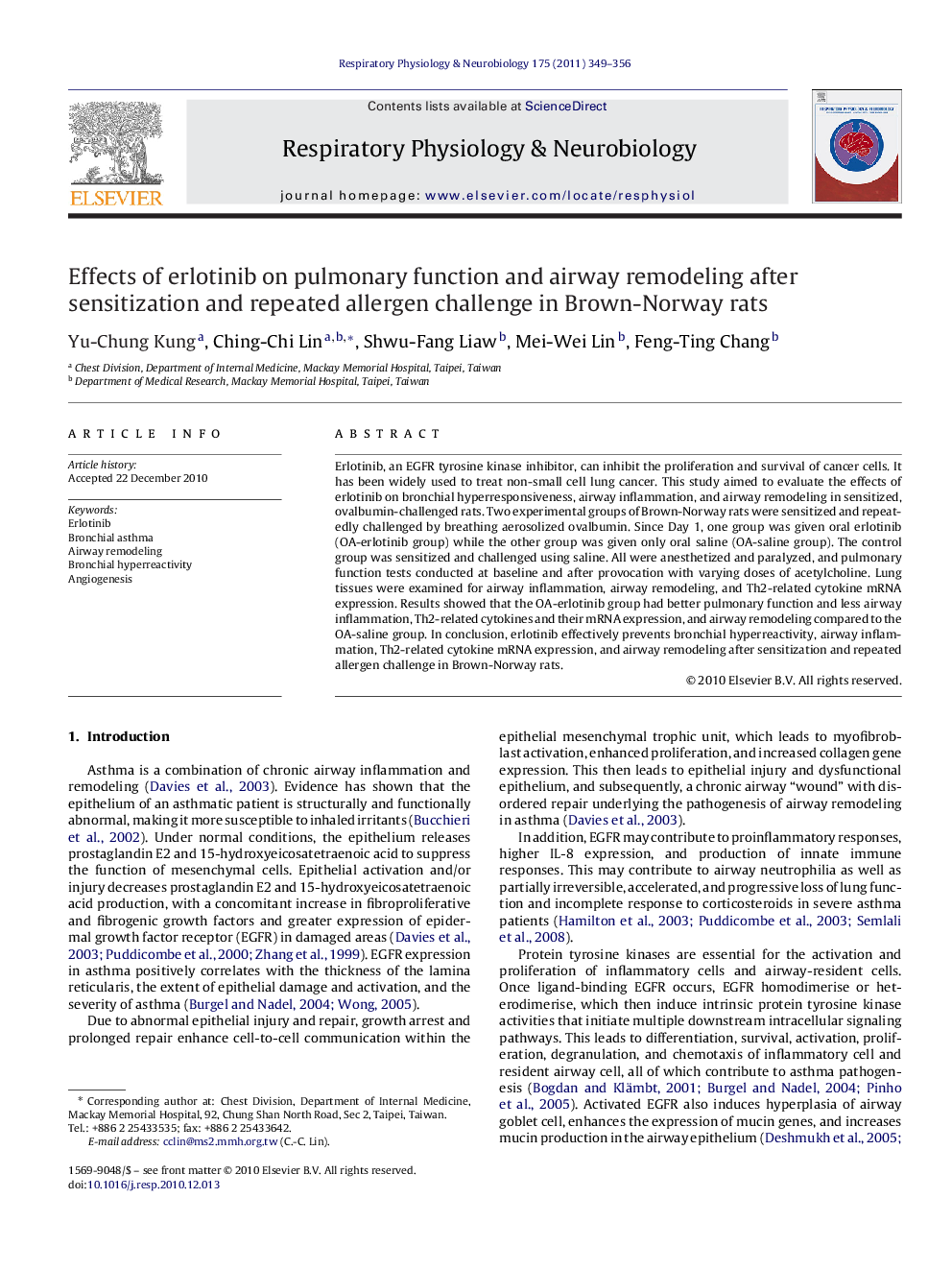| Article ID | Journal | Published Year | Pages | File Type |
|---|---|---|---|---|
| 5926509 | Respiratory Physiology & Neurobiology | 2011 | 8 Pages |
Erlotinib, an EGFR tyrosine kinase inhibitor, can inhibit the proliferation and survival of cancer cells. It has been widely used to treat non-small cell lung cancer. This study aimed to evaluate the effects of erlotinib on bronchial hyperresponsiveness, airway inflammation, and airway remodeling in sensitized, ovalbumin-challenged rats. Two experimental groups of Brown-Norway rats were sensitized and repeatedly challenged by breathing aerosolized ovalbumin. Since Day 1, one group was given oral erlotinib (OA-erlotinib group) while the other group was given only oral saline (OA-saline group). The control group was sensitized and challenged using saline. All were anesthetized and paralyzed, and pulmonary function tests conducted at baseline and after provocation with varying doses of acetylcholine. Lung tissues were examined for airway inflammation, airway remodeling, and Th2-related cytokine mRNA expression. Results showed that the OA-erlotinib group had better pulmonary function and less airway inflammation, Th2-related cytokines and their mRNA expression, and airway remodeling compared to the OA-saline group. In conclusion, erlotinib effectively prevents bronchial hyperreactivity, airway inflammation, Th2-related cytokine mRNA expression, and airway remodeling after sensitization and repeated allergen challenge in Brown-Norway rats.
